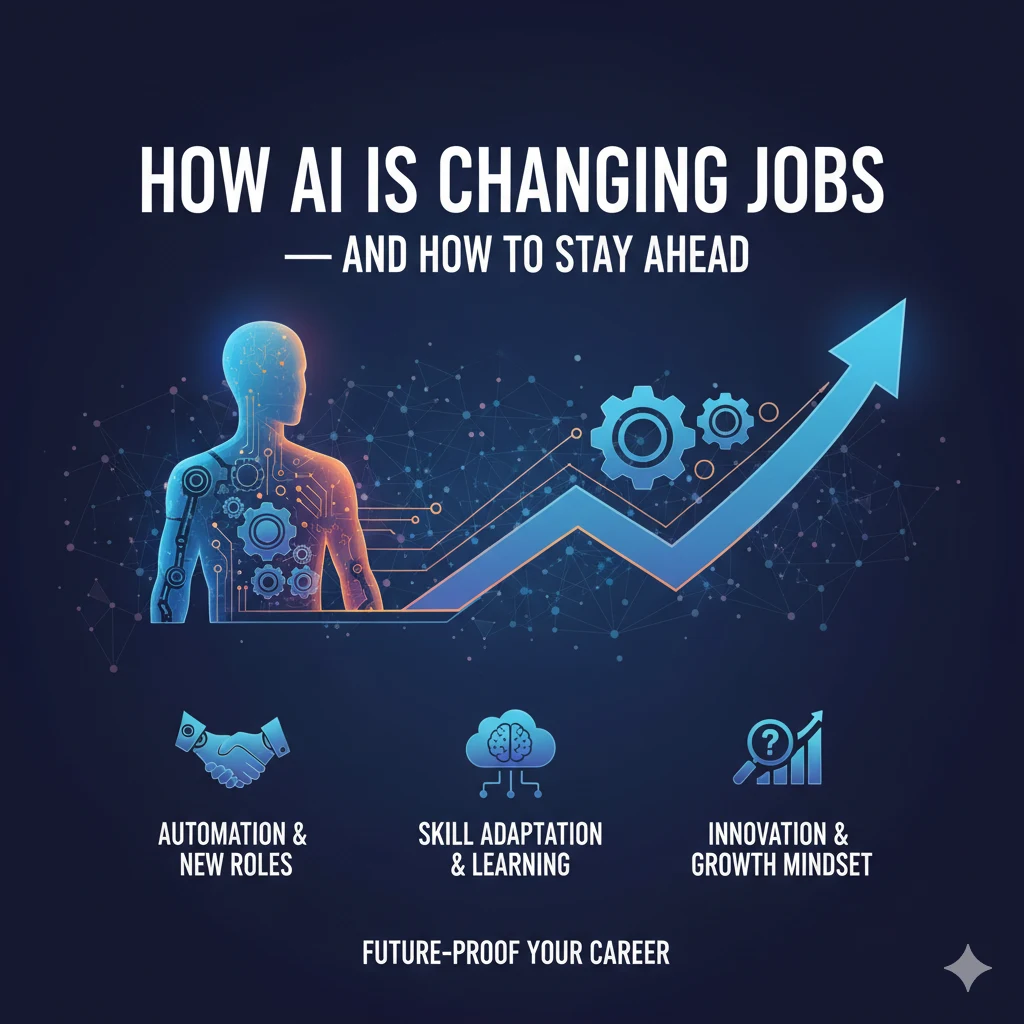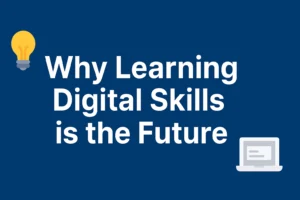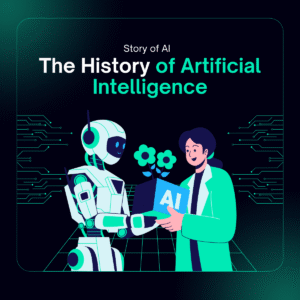Artificial Intelligence (AI) is no longer just a buzzword—it’s part of our everyday lives. From chatbots answering customer questions to algorithms recommending what we watch, AI is reshaping the way businesses operate and how people work. But with this rapid change comes a big question: Will AI take over jobs, or will it create new opportunities?
The truth lies somewhere in between. AI is transforming industries, replacing some tasks, and at the same time opening up entirely new roles. The key to thriving in this new world is not to fear AI, but to adapt and stay ahead.
How AI is Changing the Workplace
Automation of Repetitive Tasks
Many routine tasks—like data entry, scheduling, or basic customer support—are being automated by AI. This allows businesses to save time and reduce costs.Smarter Decision-Making
Companies now use AI to analyze massive amounts of data. For example, in marketing, AI tools can predict customer behavior, making campaigns more effective.New Job Roles
While some tasks disappear, new roles like AI trainers, data analysts, and automation specialists are emerging. These jobs didn’t exist a decade ago.Industry Transformation
Healthcare: AI helps diagnose diseases faster.
Finance: AI detects fraud and improves investments.
Retail: Personalized shopping experiences powered by machine learning
💡Skills That Will Keep You Ahead
The rise of AI doesn’t mean humans are less important. In fact, it highlights the value of uniquely human skills. To stay ahead, focus on building these:
Digital Literacy – Learn how AI tools work and how to use them effectively.
Critical Thinking – AI can provide information, but humans must make wise decisions.
Creativity – Machines can analyze patterns, but they can’t innovate like humans.
Adaptability – Be ready to learn new tools and switch strategies quickly.
Communication & Leadership – Soft skills will always remain essential in guiding teams and building trust.
🎯 Practical Steps to Prepare for the AI EraText Here
The rise of AI doesn’t mean humans are less important. In fact, it highlights the value of uniquely human skills. To stay ahead, focus on building these:
Digital Literacy – Learn how AI tools work and how to use them effectively.
Critical Thinking – AI can provide information, but humans must make wise decisions.
Creativity – Machines can analyze patterns, but they can’t innovate like humans.
Adaptability – Be ready to learn new tools and switch strategies quickly.
Communication & Leadership – Soft skills will always remain essential in guiding teams and building trust.
🎯 Practical Steps to Prepare for the AI Era
Learn Continuously → Take online courses on AI, data, or emerging technologies.
Experiment with Tools → Try free AI-powered apps for writing, design, or productivity.
Build a Portfolio → Apply AI in small projects—like automating reports or using AI for content creation.
Stay Updated → Follow tech blogs, podcasts, and industry news to keep up with trends.
Network with Professionals → Join communities where people share how they’re adapting to AI.
📌 Final Thoughts
AI is not the end of jobs—it’s the beginning of a new way of working. Yes, some roles will disappear, but countless new opportunities will emerge for those ready to adapt. The most successful people in the AI-driven future will be those who combine technology with creativity, adaptability, and problem-solving.
🌟 Don’t wait until change forces you to adapt. Start learning today, embrace AI as a tool, and you’ll not only survive but thrive in the future of work.



